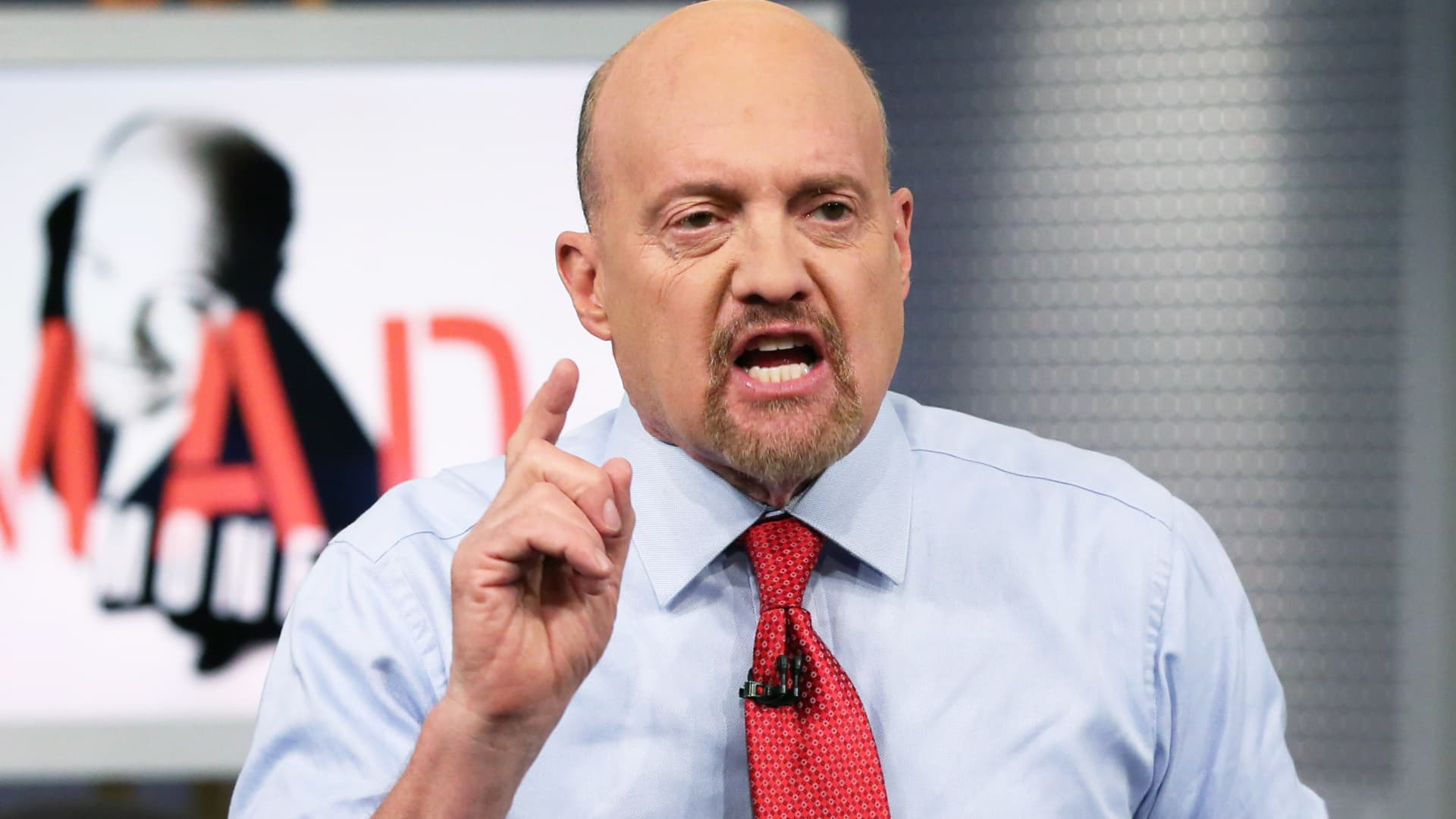
CNBC’s Jim Cramer said Wednesday he’s still “drawn to owning stocks,” even as the Federal Reserve aggressively raises interest rates in such a way that some skeptics believe will send the U.S. economy into a recession.
“They probably sold into the rally today. They will sell again tomorrow because this is who they are,” the “Mad Money” host said, referring to a late session surge on Wall Street that saw the S&P 500 and Dow Jones Industrial Average post their biggest daily gains since 2020.
Stocks rallied in response to the Fed raising rates by half a percentage point, which was widely expected, and Chair Jerome Powell ruling out future 75 basis point hikes.
The intensity and breadth of Wednesday’s post-announcement rally suggests some investors think the Fed can thread the needle of tamping down inflation with tighter policy without sparking a significant economic downturn. However, Cramer said that he thinks the vocal Fed skeptics will not be swayed by Wednesday’s relief rally.
He acknowledged there is uncertainty about the ultimate effects of the Fed’s 50 basis point hike. Before Wednesday, the last time the U.S. central bank raised rates by half a percentage point in one meeting was 2000. Quarter percentage point upticks are the typical increment.
“So, starting tomorrow, we’ll once again prepare for the worst and expect the worst … and as long as money managers are unsure, which they are, they’ll keep selling things that they shouldn’t,” Cramer said. “But, if you’re in my camp, you’re drawn to owning stocks here because there are plenty of companies that could do well, even if the more bearish camps turn out to be right.”
Cramer highlighted both individual companies and broad sectors that he thinks can work from here, based on his economic outlook. For example, he said he likes Advanced Micro Devices, which has struggled so far this year, but that just reported strong earnings and forward guidance.
Financials also are well positioned, he said. “Remember, banks get instantly more profitable” when the Fed raises short-term rates, said Cramer, whose Charitable Trust owns two banks: Wells Fargo and Morgan Stanley. He was referring to banks’ net interest income, which is what they earn from lending after subtracting what they pay customers on their deposits.
“You can also buy tech because tech stocks tend to do well once inflation peaks, but only profitable tech stocks please, because the money losers aren’t going to make it to the promised land” due to higher interest rates, he said.
Disclosure: Cramer’s Charitable Trust owns shares of AMD, Morgan Stanley and Wells Fargo.
Sign up now for the CNBC Investing Club to follow Jim Cramer’s every move in the market.






